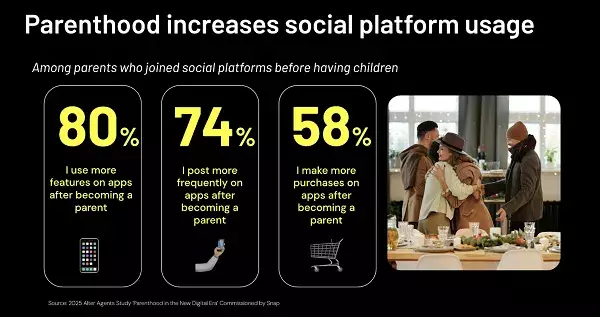In contemporary society, the notion of parenthood has evolved into a complex hybrid of responsibilities and digital dependencies. While many assume that becoming a parent naturally diminishes one’s social media activity—due to time constraints and the whirlwind of caring for a child—the reality is far more nuanced. Instead of scaling back, modern parents often immerse themselves deeper into the digital world. This paradox stems from a subtle yet powerful influence: social media’s role as both a tool and a manipulate.* The allure of sharing tender moments, seeking advice, and fulfilling social needs are amplified, conditioned by algorithms designed to keep users engaged. This isn’t accidental but a calculated strategy that leverages parental vulnerability, turning ordinary sharing into a pathway for consumerism and social reinforcement.
The Influence of the Digital Parenting Cult
From the moment they receive their first baby photo approval, parents become unwitting participants in an ongoing cycle of digital validation. Platforms like Snapchat and Instagram, in particular, have effectively normalized the idea that parenting success is measured through seconds of engagement—likes, comments, story views. These metrics serve as instant feedback, fostering a dependency that subtly shifts identity perception. The data revealing that 59% of parents increase their social media usage post-childbirth highlights this phenomenon: social platforms have become essential extensions of their identity, a battleground for social standing in the parenting community.
Yet, this increased activity isn’t purely about connection; it is a strategic dance with consumer influence. The most startling insight from recent studies is how these interactions translate directly into purchasing behavior. Parents, influenced by what their children see and share, are becoming receptive to targeted advertising integrated into their family’s daily routines. This is not accidental but a meticulously crafted environment designed to maximize consumption—where social validation and shopping collide on the same platform, subtly indoctrinating parents to view shopping as a shared, social experience.
The Commercialization of Parenthood as a Cognitive Trap
The rise in targeted advertising during key moments—Black Friday, holidays, weekends—exposes a disturbing trend: social media’s becoming a marketplace woven into the fabric of family life. Parents are not just passively observing content; they’re engaged in co-discovery with their children, reinforcing the idea that parenting is not just about nurturing but also about material acquisition. The statistic that 86% of parents shop online together with their children underscores a cultural shift—one that turns shopping into a bonding ritual rooted in curated digital influences.
Industry leaders understand this, tailoring ads to appear during periods when families are most active online. The strategic deployment of targeted advertisements during after-school or weekend browsing sessions is a calculated move to infiltrate family decision-making processes indirectly. It’s a form of psychological conditioning set against the backdrop of supposed “authentic” family moments. These tactics effectively blur the lines between genuine social connection and commercial manipulation, creating a cycle where emotional bonds with children are intertwined with consumerism.
A Thematic Shift Toward Superficial Social Cohesion
What emerges is a disturbing portrait of social media wielding its influence under the guise of familial bonding. This isn’t simply about sharing cute photos or updating friends; it’s an intricate web that fosters dependency, consumerism, and social validation in equal measure. Parents, eager to demonstrate active engagement and cocooned in the comforting illusion of community, are gradually surrendering their agency, allowing algorithms to shape their perceptions of what it means to be a “good parent.”
Underlying this entire phenomenon is a central misconception: that social media makes parenting easier or more connected. In truth, it often creates an echo chamber that prioritizes superficial engagement over genuine relationship-building. With every like and share, parents unwittingly reinforce a narrative crafted by platforms designed more for profit than for authentic community. As a result, the digital landscape becomes a battleground where authentic parental identity is reconstructed, often at the expense of real-world values and critical thinking about consumption and upbringing.
In the end, social media’s infiltration into the parenting sphere is far from benign. It subtly redefines the modern family’s priorities, nudging them toward a commodified view of love, success, and community that benefits corporate interests while leaving genuine human connection—a cornerstone of meaningful parenting—diminished. This manipulation is a cornerstone of the contemporary digital encroachment, demanding a more critical stance from those who refuse to accept the glossy veneer of social media as an unqualified good.









Leave a Reply